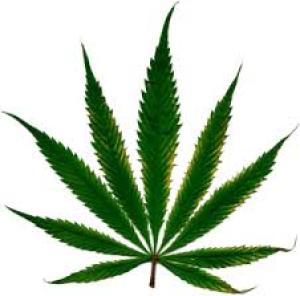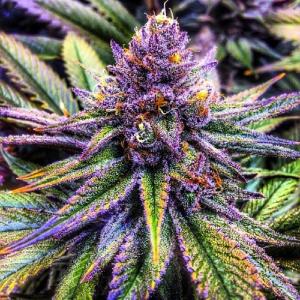Here comes the next phase of drug decriminalization and legalization.
If you live in one of these states, you have your work cut out for you.
Enough time has passed to begin to evaluate the consequences of marijuana legalization in the Rocky Mountain State.
The Florida medical marijuana mess continues, a Nebraska medical marijuana initiative has submitted proposed language, and more.
Illinois police chiefs don't want home marijuana cultivation, legislators in the Dakotas in drug test legislating frenzy, Egypt is set to begin executing drug smugglers, and more.
The White House belatedly released the National Drug Control Strategy, a Denver magic mushroom initiative has qualified for the May ballot, Northeastern marijuana legalizers are busy, and more.
Florida courts and the legislature are both dealing with the legislature's previous efforts to mess with the voter-approved medical marijuana amendment, a pot legalization bill gets a hearing in New Hampshire, a Virginia trooper and a drug suspect are killed in the drug war, and more.
Pushback against marijuana legalization emerges in Illinois and New York, the federal prosecutor in Philadelphia has moved to block a supervised injection site, the Massachusetts Supreme Judicial Court will decide on whether an involuntary manslaughter charge is appropriate in a heroin overdose death case, and more.
A House committee will take up legal marijuana banking issues next week, NY cops oppose legalization there, Maryland sees pot legalization bills filed, Texas sees medical marijuana bills filed, and more.
Its official: Voters in Denver will go to the polls in May to decide whether to allow residents to use and possess magic mushrooms and psilocybin, the hallucinogenic substance that makes those mushrooms so magic, without fear of criminal penalty. The city's Election Division confirmed last Friday that an initiative petition to decriminalize the mushrooms had received enough signatures to qualify for the May 7 municipal ballot.

magic mushrooms (Creative Commons)
That will mark the first time any jurisdiction in the United States has taken up the issue. A California statewide initiative campaign last year failed to achieve any traction and never made it to the ballot. An
Oregon statewide initiative is aiming at the 2020 ballot, but if it makes it, that vote will take place a year and a half after the Denver vote.
Denver is building a reputation as a leader in progressive drug policy. Colorado and Washington were the first states to legalize marijuana in 2012, and in 2016 Denver became the first city in the country to allow for the consumption of marijuana at retail establishments, including bars.
The group behind the initiative, Decriminalize Denver, wants to make the use and possession of psilocybin mushrooms by people 21 and over the city's "lowest law enforcement priority." The initiative would also prevent the city from using its resources to punish adults who are caught using or possessing the mushrooms.
What the proposed ordinance would not do is legalize the sale of the drug in retail shops. One step at a time is the apparent plan.
"We're a pretty progressive city when it comes to drug policy," Decriminalize Denver director Kevin Matthews told NBC News. Still, he said he didn't foresee magic mushroom retail stores similar to pot shops "in the near future."
The initiative has won the approval of the Drug Policy Alliance, which is pushing more broadly for drug decriminalization.
"Under current Colorado law, with the exception of marijuana, simple drug possession can carry felony charges leading to devastating consequences including incarceration and a lifelong criminal record. People across the state want to do things differently," said Art Way, the group's Colorado state director. "While psilocybin is behind a relatively small portion of these arrests, it's terrific that Denver voters will have the opportunity to chip away at the drug war through this initiative."
Even if the initiative were to pass, magic mushrooms would remain illegal under both state and federal law, which considers them a Schedule I controlled substance -- the most dangerous, with no approved medical use and high potential for abuse--a designation shared with heroin, ecstasy, and, bizarrely enough, marijuana.
But are magic mushrooms really so dangerous? The Global Drug Survey, with more than 120,000 participants in more than 50 countries, doesn't think so. Of the more than 12,000 people who reported taking the drug in the 2016 survey, only 0.2 percent required emergency medical treatment, a rate dramatically lower than for ecstasy, LSD, or cocaine.
"Magic mushrooms are one of the safest drugs in the world," addiction psychiatrist and Global Drug Survey founder Adam Winstock told The Guardian, adding that the biggest risk was that people could pick and eat the wrong mushrooms. "Death from toxicity is almost unheard of with poisoning with more dangerous fungi being a much greater risk in terms of serious harms."
Still, magic mushrooms aren't completely harmless, Winstock said. "Combined use with alcohol and use within risky or unfamiliar settings increase the risks of harm most commonly accidental injury, panic and short-lived confusion, disorientation and fears of losing one's mind." In some cases, people can experience panic attacks, he added, advising people who are thinking about using them to "plan your trip carefully with trusted company in a safe place and always know what mushrooms you're using."
Come May, we will see whether voters in Denver are ready to take the next step in progressive drug reform.
This article was produced by Drug Reporter, a project of the Independent Media Institute.
Drug Policy Alliance is a financial supporter of Drug War Chronicle.
back to top
It's a fundamental of our political system that governors play a critical role in shaping policy at the state level—and even beyond. Governors can use their position as a bully pulpit to advance their agenda, they can use their budget proposals or empower commissions to shape legislation, and they have the power to kill legislation they don't like with their veto pens.
And because Congress has so far refused to act to end federal marijuana prohibition, the role of state governors in marijuana policy is even more important. While they can't simply wave a magic wand to enact their desires, gubernatorial support or opposition can make or break a marijuana reform bill.With public opinion having shifted dramatically in favor of marijuana legalization—an October Gallup poll had support nationwide at 66 percent, including even a majority of Republicans—and several years worth of legalization to look at in pioneering states such as Colorado and Washington, more and more governors are getting on the legalization bandwagon.
Last week, the National Organization for the Reform of Marijuana Laws (NORML) released its 2019 US Governors Scorecard. It gave each governor a letter grade from A to F based on a combination of legislative history, policy positions taken, and public comments on the issue. NORML was pretty happy with what it found.
“There exists unprecedented political support among U.S. governors for marijuana policy reform,” the group noted, pointing to A grades going to nine governors, all of them Democrats. That's up dramatically from the two A grades handed out just last year. Similarly, seven governors, six of them Democrats, saw their grades improve over last year.
Several newly elected Democratic governors, such as Ned Lamont of Connecticut, J.B. Pritzker of Illinois, and Tim Walz of Minnesota actively campaigned on a pledge to legalize marijuana, while re-elected New York Gov. Andrew Cuomo has also broken dramatically toward legalization. It's a winning issue for Democrats.
But support for legalization is “more partisan than ever before,” NORML points out. “While almost half of all Democratic governors are now on record in support of adult use regulation, no Republican governors publicly advocate for this policy.”
NORML graded 46 governors, saying it had insufficient data to grade the other four. Of the 23 Republican governors only five (22 percent) received a passing grade of C or higher, while among the 23 Democratic governors all but one (96 percent) got at least a C. Of the nine governors getting an A, all were Democrats. Of the four governors getting an F, all were Republicans.
Here are the governors graded the worst by NORML. The list contains the four governors graded F as well as the two governors graded D-. They are all Republicans.
1. Arizona Gov. Doug Ducey: D-. Ducey opposed a 2016 marijuana legalization initiative, saying “I don't know how we make ourselves a stronger state or a better place through this initiative. Almost everything outside of our economy and education that I have to deal with in this state has a common culprit of drug abuse and addiction.” After the measure was narrowly defeated, he said. “Fortunately, Arizona is a place where common sense can still work. We fought very hard and we won this round.”
2. Idaho Gov. Brad Little: F. Little just took office this month, but is on record opposing marijuana legalization and supports only the most limited of pilot programs permitting the use of CBD, but not its broader legalization. He has also expressed concern that allowing hemp cultivation—which is now legal under federal law—would serve as “camouflage for the marijuana trade.”
3. Mississippi Gov. Phil Bryant: D-. While he allowed an extremely limited CBD bill to become law, that law provides no in-state supply for those products, and he remains vocally opposed to marijuana legalization: "We're not going to consider it in Mississippi as long as I'm governor," he said. At least he's term-limited out in 2020.
4. Nebraska Gov. Pete Ricketts: F. A firm foe of marijuana legalization, Ricketts has complained bitterly about neighboring Colorado's legal marijuana regime, saying it imposed a burden on western Nebraska law enforcement (which is presumably forced to sit on the side of highways coming out of Colorado and pull over people looking for pot). Ricketts also opposes medical marijuana absent any firm study by the Food and Drug Administration. He and his fellow Cornhuskers have apparently forgotten that the state was once a leader in progressive pot policy, having decriminalized it during that first wave in the 1970s.
5. Ohio Gov. Mike DeWine: F. DeWine just took office this month, but as state attorney general he declined to comment on whether the Justice Department should go after medical marijuana users and providers in the state. When running for governor, he opposed a statewide initiative that would have diverted many low-level drug users from prison and came out firmly “against the legalization of recreational marijuana,” even falsely claiming that its legalization in other states had led to increased use among youth.
6. South Dakota Gov. Kristi Noem: F. Noem hasn't been in office long enough to do any damage, but she thinks marijuana is “a gateway drug” and vowed that “As governor, I will oppose all attempts to legalize marijuana.” She has the distinction of governing over the only state in the country that makes it a crime to have used marijuana.
back to top
It's been five years since the era of legal marijuana sales began in Colorado, and that's been enough time to begin to be able to see what sorts of impact the freeing of the weed has had on the Rocky Mountain State. From the economy and the fiscal health of the state government to law enforcement and public safety, legalizing marijuana has consequences.

Denver's skyline (Creative Commons)
Thanks to
marijuana sales reports and
tax revenue reports from the state Department of Revenue, as well as a legislatively mandated
biennial report from the Division of Criminal Justice, we can see what some of those consequences are.
1. They sure buy a lot of weed in Colorado, and the state's coffers are filling up with marijuana tax revenues. Total marijuana sales in the state were more than $683 million in 2014—the year legal sales began—and have since more than doubled to more than $1.4 billion last year. Since legalization, the amount of legal weed sold in the state has now topped $6 billion. That's created nearly 20,000 jobs, and it has also generated more than $900 million for the state government in marijuana taxes, licenses, and fees. Tax revenues have increased every year since legalization and those dollars help fund public school projects, as well as human services, public affairs, agriculture, labor and employment, judicial affairs, health care policy, transportation and regulatory affairs. Pot revenues still only account for one percent of state revenues, but every $900 million helps.
2. Marijuana arrests are way down, but black people are still getting busted disproportionately. Even though pot is legalized, there are still ways to get arrested on a marijuana charge, such as possessing more than an ounce or selling or growing unlicensed weed. Still, arrests have declined dramatically, dropping by 56 percent during the legalization era. Both possession and sales offenses declined, but arrests for unlawful production were up markedly, reflecting the state's continuing fight to eliminate the black market. The age group most likely to get busted was 18-20-year-olds, who can only legally use or possess marijuana if they have a medical card. They are getting busted at a rate 30 times that of adults. Arrests are way down among all ethnic/racial groups, but black people are still getting arrested for pot at a rate nearly twice that of whites.
3. Legalization has not led to more traffic fatalities. While the number of car drivers in fatal wrecks had marijuana in their systems has increased dramatically, the report notes that “detection of cannabinoid in blood is not an indicator of impairment but only indicates presence in the system.” Marijuana DUIs were up three percent, but fatal traffic accidents involving marijuana-impaired drivers actually decreased by five percent.
4. Use rates are up slightly among adults, but not among teens. The number of adults who reported using marijuana in the past 30 days has increased by 2 percent, with nearly one-fifth of men reporting past month use. That's almost double the number of women reporting past month use. These are high rates of use compared to the nation as a whole, but the state has always had relatively high use rates, even dating back before legalization. (There is a chicken and egg question here: Do Coloradans like to smoke pot because weed is legal or is weed legal because Coloradans like to smoke pot?) But what about the kids? Well, the kids are alright. Marijuana use rates among middle and high school students have been unchanged since legalization, and so have graduation rates.
5. Emergency room visits linked to marijuana increased. Some 575 people presented to hospitals with marijuana-related problems back in 2000, but that number jumped to more than 3,500 by 2016. Emergency room visits and calls to poison control centers were both up. It's important to note, however, that the vast majority of marijuana-related ER visits are related to panic or anxiety reactions and end with the patient eventually calming down and going home. Marijuana ER visits are not life-The rise is also likely a function of new, naive users, especially of edibles, biting off more than they can chew.
back to top
The Florida medical marijuana mess continues, a Nebraska medical marijuana initiative has submitted proposed language, and more.
FloridaSecond Florida Bill to End Ban on Smoking Medical Marijuana Filed. State Sen. Jeff Brandes (R-St. Petersburg) has filed SB 182, which would end the state's ban on smoking medical marijuana. A similar bill, SB 372, was filed earlier this month by Sen. Gary Farmer (D-Fort Lauderdale). The ban has also been challenged in the courts, and GOP Gov. Ron De Santis has said that he will drop the state's appeal in the case if lawmakers don't eliminate the ban.
Florida Bill to End Ban on Smoking Gets Twisted. A bill from Jeff Brandes (R-St. Petersburg) that would end the ban on smoking medical marijuana, SB 182, was so altered in the Senate Health Policy Committee Monday that Brandes now says it would be worse for patients that doing nothing at all. At the behest of Chairwoman Gayle Harrell (R-Port St. Lucie), the committee voted to require that patients seeking to use smokable marijuana get a second opinion from a physician and to mandate that doctors would only be able to order smokable marijuana if it were the only route of administration that would benefit the patient. Brandes says the bill “will have to be significantly amended” before he would send it to the Senate floor for a full vote.
Florida Judge Again Strikes Down Cap on Dispensaries. For the second time in a month, Leon County Circuit Court Judge Karen Gievers has struck down a state law capping the number of dispensaries a medical marijuana business can operate. The limit on the number of storefronts was not contained in the state’s successful medical marijuana amendment but imposed by the legislature in 2017. In her opinion, Gievers harshly criticized the legislature and state health officials for failing to comply with the amendment. "The evidence clearly and conclusively establishes beyond any doubt that conveniently located medical marijuana dispensaries (as opposed to vehicle delivery, the only allowed alternative means of dispensing) promote authorized users’ improved access to medical marijuana products and related information and services, at lower cost, and promote public safety (the stated goals for regulation in the amendment)," Gievers wrote in Friday’s ruling.
Nebraska
Nebraska Medical Marijuana Initiative Backers File Proposed Language. A group calling itself Nebraskans for Sensible Marijuana Laws submitted its proposed language for a medical marijuana ballot initiative Tuesday. If approved for signature gathering, the initiative will need about 130,000 valid voter signatures to qualify for the 2020 ballot. The move comes after the state legislature has refused for years to pass legislation, but initiative organizers say they would prefer to achieve their goals by passing Legislative Bill 110, which is pending this session.
Wyoming
Wyoming Medical Marijuana Bill Filed. Republican House Majority Leader Eric Barlow has filed a bill to legalize medical marijuana, HB 278. The bill would create a strictly regulated system for the use and distribution of medical marijuana in the state.
[For extensive information about the medical marijuana debate, presented in a neutral format, visit MedicalMarijuana.ProCon.org.]
back to top
Illinois police chiefs don't want home marijuana cultivation, legislators in the Dakotas in drug test legislating frenzy, Egypt is set to begin executing drug smugglers, and more.

New Mexico legislators cite prison overcrowding as a reason to defelonize drug possession. (supremecourt. us)
Illinois Police Chiefs Say No Home Cultivation. The Illinois Association of Chiefs of Police said Monday their top priority regarding marijuana legalization is to ensure that it does not allow for personal home cultivation. “It’s dangerous and we’re not trying to be alarmist. It’s just what’s happened in other states,” said Director Ed Wojcicki. “If the bill has home-grown, it’ll make any type of regulation impossible,” said Wojcicki. The legislation being drafted this year does include home cultivation.
Drug Testing
North Dakota Senate Committee Holds Hearing on School Employee Drug Testing Bills. The Senate Human Services Committee held a hearing Tuesday on a bill that would require random, suspicionless drug testing of school board members and school employees. Critics said SB 2337 was unconstitutional, but bill sponsor Sen. David Clemens (R-West Fargo) said it was meant as a “safeguard to eliminate drugs from our schools.” The committee took no action on the bill.
South Dakota Senate Committee Advances Bill to Drug Test Legislators. The Senate Judiciary Committee voted 4-1 Thursday to advance SB 104, which would impose random drug testing on legislators. The bill would require that between three and 10 legislators be subjected to random drug tests each week the legislature is in session.
Sentencing
New Mexico Bill Would Defelonize Drug Possession. Sen. Jacob Candelaria of Albuquerque and Rep. Andrea Romero of Santa Fe, both Democrats, have filed a bill that makes possession of all drugs without intent to distribute a misdemeanor instead of a felony. SB 408 and its House counterpart are aimed at not burdening drug users with felony records. “A felony conviction leads to what we call ‘civil death,’ ” he said. “You are ostracized from the community; you have a difficult time accessing any services, any public support, including public housing; the doors to higher education are shut closed to you almost forever,” he added.
International
Egypt's Cabinet Approves Bill to Execute Drug Smugglers. The cabinet on Wednesday approved a bill that mandates the death penalty for those who "import or export synthetic substances that cause harm to the body, mind or the nervous system." Under current law, such offenses are punishable by up to life in prison. Under the new law, even simple drug possession would lead to a one-year mandatory minimum prison sentence.
Philippines House Approves Medical Marijuana. The House of Representatives approved the Philippine Compassionate Medical Cannabis Act on Tuesday. Under the bill, medical marijuana would only be available at Department of Health hospitals and private hospitals licensed for medical marijuana purposes. The bill does not allow the use of marijuana in its raw form.
back to top
The White House belatedly released the National Drug Control Strategy, a Denver magic mushroom initiative has qualified for the May ballot, Northeastern marijuana legalizers are busy, and more.

Denver will vote on removing criminal penalties for psychedelic mushrooms. (Greenoid/Flickr)
World Health Organization Urges Removal of Marijuana from Drug Treaties. The World Health Organization (WHO) last Friday published a letter to the United Nations advising that marijuana and cannabis resin should no longer be considered controlled substances under international drug treaties. WHO specifically asked that the substances be moved out of Schedule IV of the Single Convention on Narcotic Drugs, which includes drugs thought to have no therapeutic value.
Cory Booker Enters Presidential Race With Call for Marijuana Legalization, Criminal Justice Reform. Sen. Cory Booker (D-NJ) formally entered the race for the Democratic presidential nomination last Friday and called for marijuana legalization and broader criminal justice reforms. There is a need for "changing our drug laws," including "ending the prohibition against marijuana," he said. "We do not have equal justice under the law," Booker said of the disproportionate rate at which black people are incarcerated under the country's drug laws. I believe in redemption."
New York Governor Wants Marijuana Legalized by April 1. Gov. Andrew Cuomo (D) said last Friday he wanted to see marijuana legalized by the state budget deadline of April 1. His remarks came after Assembly Speaker Carl Heastie said that lawmakers might have to wait until after the budget to take up legalization. But Cuomo said Friday he isn't giving up on his timetable and that a lot can happen in the legislature in six weeks.
Pennsylvania Legalization Bill Coming. Rep. Jake Wheatley (D-Allegheny County) will file a legalization bill that expunges criminal records for past pot convictions, releases inmates currently serving time for such offenses, and allows people 21 and over to use, buy, and grow marijuana.
Vermont Attorney General Supports Legalizing Pot Sales. Vermont became the first state to legalize marijuana legislatively last year but did not legalize marijuana commerce. Now, there's an effort underway to do so with SB 54, and Attorney General TJ Donovan supports it. "We have to have a regulated market," he said last Thursday. "This is common sense." The bill is currently before the Senate Judiciary Committee.
Medical Marijuana
Wyoming Medical Marijuana Bill Filed. Republican House Majority Leader Eric Barlow has filed a bill to legalize medical marijuana, HB 278. The bill would create a strictly regulated system for the use and distribution of medical marijuana in the state.
Psychedelics
Denver Will Vote on Magic Mushroom Initiative in May. City officials announced last Friday that the Decriminalize Denver initiative to make adult use and possession the lowest law enforcement priority and bar the city from using its resources to arrest and prosecute people for the hallucinogenic fungi has qualified for the ballot and will go before voters in the May municipal election. This marks the first time any jurisdiction in the US will have voted on decriminalizing psychedelics.
Drug Policy
Trump Administration Unveils National Drug Control Strategy. The White House last Thursday released its long-awaited National Drug Control Strategy, which typically is released annually, but which the Trump administration failed to do last year. The document contains little new policy but instead emphasizes existing Trump priorities: reducing drug supply through stricter law enforcement, lowering first-time opioid prescription rates, and expanding access to addiction treatment. Despite its emphasis on supply reduction, it acknowledges the risk of reducing access for chronic pain patients. Although it talks about drugs coming across the Mexican border, the strategy does not contain the words "border wall."
Drug Testing
North Dakota School Board and Employee Drug Testing Bills Die. A pair of bills that would have mandated random, suspicionless drug tests for school employees and school board members have been killed in the Senate. SB 2310 was aimed at school employees, while SB 2337 was aimed at board members.
Sentencing
Mississippi Bill Targets People Who Provide Drugs in Fatal Overdoses. After a conviction for "depraved heart" murder in the case of a fatal overdose was overturned on appeal, state legislators have filed HB 867, which would allow sentences of 20 years to life without parole for people charged with selling drugs that result in the deaths of others. The bill would also increase penalties for the sale of heroin or fentanyl. The bill passed out of the House Judiciary Committee last week and is now headed for the House floor.
(This article was prepared by StoptheDrugWar.org's 501(c)(4) lobbying nonprofit, the Drug Reform Coordination Network, which also pays the cost of maintaining this website. DRCNet Foundation takes no positions on candidates for public office, in compliance with section 501(c)(3) of the Internal Revenue Code, and does not pay for reporting that could be interpreted or misinterpreted as doing so.)
back to top
Florida courts and the legislature are both dealing with the legislature's previous efforts to mess with the voter-approved medical marijuana amendment, a pot legalization bill gets a hearing in New Hampshire, a Virginia trooper and a drug suspect are killed in the drug war, and more.

There's a battle over smokable medical marijuana in Florida. (Creative Commons)
Guam's Governor Supports Marijuana Legalization Bill. Gov. Lou Leon Guerrero has come out in support of a marijuana legalization measure, Bill 32-35, the Guam Cannabis Industry Act of 2019. Her move came after meeting with bill author Sen. Clynt Ridgell last Friday, but her support is not surprising; she’s been in favor of legalization for some time. The bill would allow adults to possess and grow their own marijuana, as well as create a system of legal marijuana commerce.
New Hampshire Marijuana Legalization Bill Gets Hearing. A bill to legalize marijuana, HB 481, got a public hearing Tuesday. The bill, sponsored by Rep. Renny Cushing (D-Hampton), is opposed by Republican Gov. Chris Sununu.
Medical Marijuana
Florida Bill to End Ban on Smoking Gets Twisted. A bill from Jeff Brandes (R-St. Petersburg) that would end the ban on smoking medical marijuana, SB 182, was so altered in the Senate Health Policy Committee Monday that Brandes now says it would be worse for patients that doing nothing at all. At the behest of Chairwoman Gayle Harrell (R-Port St. Lucie), the committee voted to require that patients seeking to use smokable marijuana get a second opinion from a physician and to mandate that doctors would only be able to order smokable marijuana if it were the only route of administration that would benefit the patient. Brandes says the bill “will have to be significantly amended” before he would send it to the Senate floor for a full vote.
Florida Judge Again Strikes Down Cap on Dispensaries. For the second time in a month, Leon County Circuit Court Judge Karen Gievers has struck down a state law capping the number of dispensaries a medical marijuana business can operate. The limit on the number of storefronts was not contained in the state’s successful medical marijuana amendment but imposed by the legislature in 2017. In her opinion, Gievers harshly criticized the legislature and state health officials for failing to comply with the amendment. "The evidence clearly and conclusively establishes beyond any doubt that conveniently located medical marijuana dispensaries (as opposed to vehicle delivery, the only allowed alternative means of dispensing) promote authorized users’ improved access to medical marijuana products and related information and services, at lower cost, and promote public safety (the stated goals for regulation in the amendment)," Gievers wrote in Friday’s ruling.
Hemp
Mississippi Lawmakers Reject Move to Let Farmers Grow Hemp. The House Drug Policy Committee on Monday rejected on a tie vote an amendment that would have changed state law to allow farmers to grow hemp in the state. Congress last year approved the production of hemp in pilot programs.
Asset Forfeiture
North Dakota Civil Asset Forfeiture Reform Bill Gets Hearing. The House Judiciary Committee heard testimony Monday on HB 1286, which seeks to end civil asset forfeiture in the state. Law enforcement officials testified against ending civil forfeiture but appeared open to transparency and reporting requirements in the bill.
Harm Reduction
California Legislature to Consider Allowing Pilot Overdose Prevention Projects. State Assemblymember Susan Talamantes-Eggman (D-Stockton) and State Senator Scott Weiner (D-San Francisco) on Monday filed a bill to allow the City of San Francisco to pilot and evaluate an “overdose prevention site” program. These sites would allow drug users could consume illegal drugs, including heroin, cocaine, or methamphetamine, under the supervision of staff trained to prevent and treat drug overdose and to help steer people who use drugs into drug treatment, housing, and other medical and social services. The bill is AB 362.
Law Enforcement
Virginia Trooper, Suspect Killed in Drug Raid. State Trooper Lucas Powell was shot and killed Monday night as he participated in a drug raid by the Piedmont Regional Gang and Drug Task Force in Cumberland County. The person whose home was being raided and who killed Powell, Corey Johnson, was then shot and killed by police.
International
Mexico to Try New Tactics in Search for Those Missing in Drug War. Mexican officials said Monday they have a new plan to search for the more than 40,000 people who have gone missing amidst the country’s drug wars. The government will create a new forensic institute and work more closely with families and international groups, interior ministry undersecretary for human rights Alejandro Encinas said at a press conference. In addition to the 40,000 missing, there are some 26,000 unidentified bodies in the forensic system, he said.
back to top
Pushback against marijuana legalization emerges in Illinois and New York, the federal prosecutor in Philadelphia has moved to block a supervised injection site, the Massachusetts Supreme Judicial Court will decide on whether an involuntary manslaughter charge is appropriate in a heroin overdose death case, and more.

Massachusett's highest court will decide if sharing heroin with someone who ODs is involuntary manslaughter. (Creative Commons)
Illinois Catholic Bishops Oppose Marijuana Legalization. The bishops in charge of all six of the state’s Catholic dioceses have unsurprisingly come out against efforts in the state legislature to legalize marijuana. "As lawmakers consider this issue, it is important to remember they are not only debating the legalization of marijuana, but also commercialization of a drug into an industry the state will profit from," the bishops said in a statement. "In seeking the common good, the state should protect its citizens."
New York PTA Opposes Marijuana Legalization. The New York State Parent Teacher Association has Gov. Andrew Cuomo's (D) and the legislature's push to legalize marijuana. is urging Gov. Andrew M. Cuomo and state lawmakers to rethink their push to legalize adult-use marijuana. "In 2017 the American Medical Association stated that marijuana is a dangerous drug, a serious public health concern and that the sale of marijuana for recreational use should not be legalized," State PTA Executive Director Kyle Belokopitsky said in a statement. "We need to listen to experts on this and must do more to protect our children from substance use disorders. This is the wrong move for New York state, our children and their families." The bill the governor has proposed requires New Yorkers to be at least 21 years of age to consume marijuana.
Medical Marijuana
Nebraska Medical Marijuana Initiative Backers File Proposed Language. A group calling itself Nebraskans for Sensible Marijuana Laws submitted its proposed language for a medical marijuana ballot initiative Tuesday. If approved for signature gathering, the initiative will need about 130,000 valid voter signatures to qualify for the 2020 ballot. The move comes after the state legislature has refused for years to pass legislation, but initiative organizers say they would prefer to achieve their goals by passing Legislative Bill 110, which is pending this session.
Asset Forfeiture
Hawaii Civil Asset Forfeiture Reform Bill Wins Senate Committee Vote. The Senate Judiciary Committee voted unanimously Tuesday to approve SB 1467, which would end civil asset forfeiture in the state. The bill now goes to the Senate Ways and Means Committee before heading to a Senate floor vote.
Harm Reduction
Eastern Pennsylvania US Attorney Files Lawsuit to Block Philadelphia Supervised Injection Site. US Attorney for the Eastern District of Pennsylvania William McSwain announced at a Wednesday morning news conference that he had filed a lawsuit aimed at blocking Philadelphia from becoming the first city in the nation to host a supervised injection site. His lawsuit asks a federal judge to declare such a facility illegal under federal law. McSwain said that by seeking a civil ruling before the site became operational, his office could avoid having to resort to making criminal arrests and prosecutions and/or forfeiture proceedings. McSwain's move comes after city officials have spent more than a year preparing to get a site up and running.
Sentencing
Massachusetts Supreme Judicial Court to Decide on Appropriate Penalty for Supplying Heroin in Overdose Cases. The state's highest court will decide whether a UMass-Amherst student who jointly procured heroin with a friend who subsequently overdosed and died from the drug can be charged with involuntary manslaughter based on wanton or reckless conduct and drug distribution. In oral arguments Monday, the student's attorneys noted that while other had been charged with involuntary manslaughter in overdose deaths, their client had not injected the victim with heroin, supplied him with other drugs, or knew of any prior overdoses. The court is not expected to rule on the case for four or five months.
back to top
A House committee will take up legal marijuana banking issues next week, NY cops oppose legalization there, Maryland sees pot legalization bills filed, Texas sees medical marijuana bills filed, and more.
Marijuana PolicyMarijuana Banking Issues to Get House Hearing Next Week. In a refreshing change from the era of Republican control of the House, the Democratic leadership is ready to move on marijuana-related issues. A subcommittee of the House Financial Services Committee will hold a hearing on "Challenges and Solutions: Access to Banking Services for Cannabis-Related Businesses" next Wednesday.
Georgia Pot Decriminalization Bill Gets Hearing. A bill to decriminalize the possession of small amounts of marijuana, SB 10, got a hearing in the Senate Judiciary Committee Wednesday. The bill would make possession of a half-ounce or less an offense punishable by no more than a $300 fine and possession of under two ounces would be a misdemeanor. Under current state law, possession of more than an ounce is a felony.
Maryland Pot Legalization Bills Filed. State lawmakers in both chambers filed legislation Wednesday that would end marijuana prohibition in Maryland. SB0771, sponsored by Sen. William C. Smith, Jr. (D-Takoma Park), and HB0656, sponsored by Del. Eric Luedtke (D-Silver Spring), would make marijuana legal for adults 21 and older and establish a system in which cannabis is regulated and taxed for adult use. Past convictions for cannabis possession and cultivation would be automatically expunged. Del. David Moon (D-Takoma Park) filed a constitutional amendment, HB0632, which would establish a similar system. If enacted, it would be placed on the ballot and decided by Maryland voters in November.
New York Police Unions Oppose Pot Legalization. The state association of police unions unanimously opposes efforts to legalize marijuana. "We wanted to be on the record that we oppose it because it's an act of total irresponsibility," Michael Palladino, head of the New York Association of Police Benevolent Associations said Wednesday. "The Governor and lawmakers are trading public safety for a money grab to plug a budget deficit arising from mismanagement of taxpayer funds. Jeopardizing the public’s safety is not something cops support."
Medical Marijuana
Arkansas Medical Marijuana Cards Valid Beginning Next Week. If you're a registered medical marijuana patient, the card is in the mail. The state Department of Health says more than 7,000 patient ID cards are being sent out now and will be active beginning next Friday.
Kansas Medical Marijuana Bill Filed. A bipartisan group of legislators filed a bill to legalize medical marijuana Wednesday. The measure, HB 2163, is not yet available on the legislative website but would provide registration for patients and licenses for medical marijuana growers and distributors and medical marijuana dispensaries. The bill would also establish the cannabis regulatory commission and taxation of cannabis.
Texas Medical Marijuana Bills Filed. The legislature will grapple with at least four different medical marijuana bills this session. The state already allows for the use of CBD cannabis oil for epilepsy, but these bills would all expand on that. Rep. Gina Hinojosa (D-Austin) has filed HB 122, which would legalize medical marijuana. Rep. Ron Reynolds (D-Missouri City) and Sen. José Menéndez (D-San Antonio) have proposed HB 209/SB 90. The bills would allow Texans with certain debilitating medical conditions to grow their own marijuana plants for personal use and would also create a licensing process for dispensaries and testing facilities. And Rep. Terry Canales (D-Edinburg) has filed HB 551. It would allow Texans who can currently use low-THC medical cannabis under the state's Compassionate Use Act to possess marijuana concentrate.
Asset Forfeiture
Utah Civil Asset Forfeiture Reform Bill Advances. Despite strong opposition from law enforcement, a bill that would require that all civil asset forfeiture cases be initially screened in state courts has advanced in the Senate. The measure, SB 109, passed the Senate Judiciary, Law Enforcement and Criminal Justice Committee Wednesday on a 4-1 vote. The bill would also mandate that seized funds go not to the seizing agency but to a grant fund operated by the state Commission on Criminal and Juvenile Justice.
back to top







